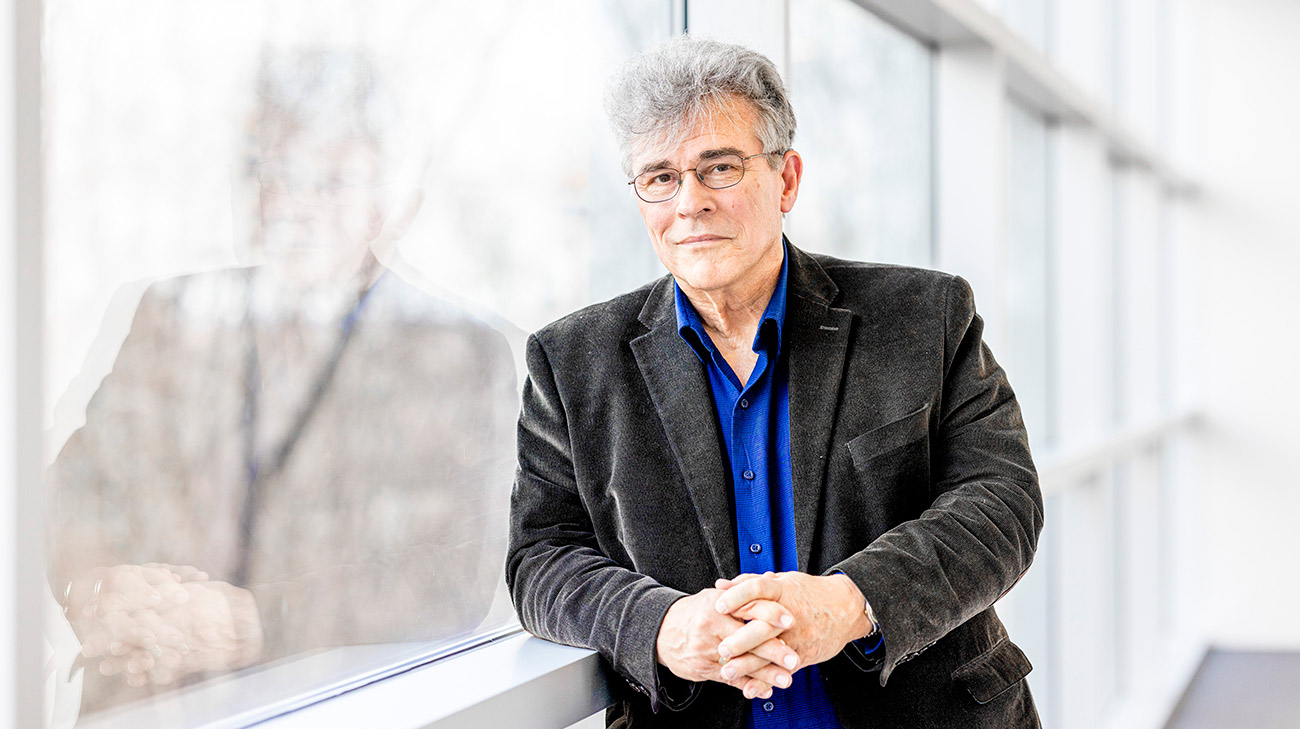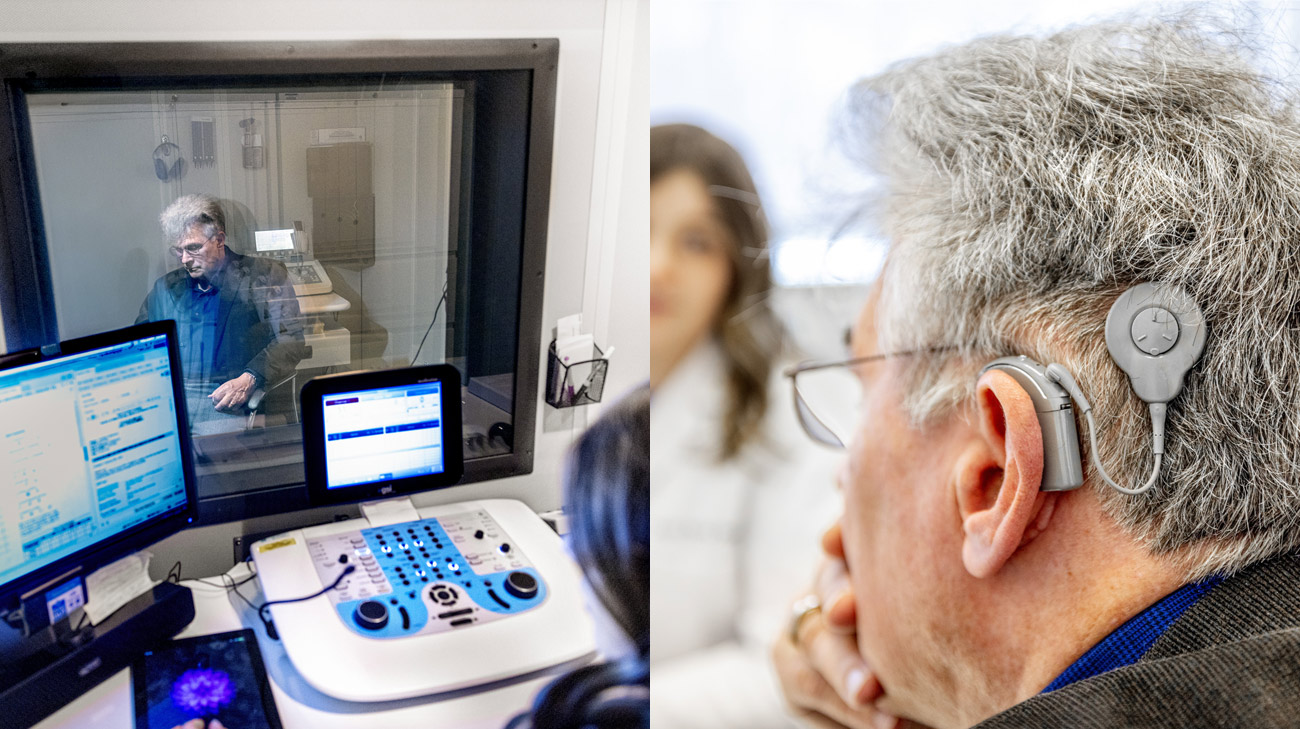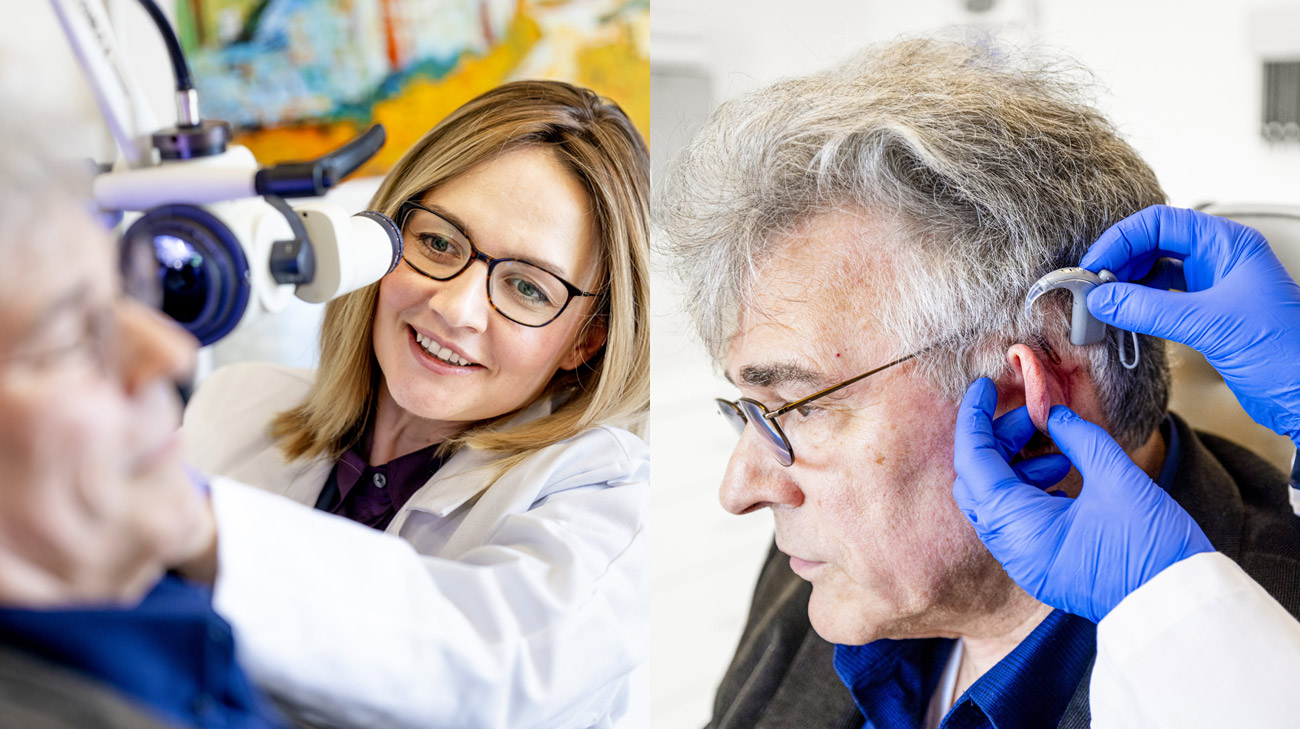
Reverend Doctor Tim Morrison, DMin, ND, is a jack of all trades who’s lived in seven states and one foreign country. The retired 74-year-old now lives in Akron, after spending 25 years of his work life in parish ministry.
At the age of seven, Tim’s mother enrolled him in drum lessons which led him to play throughout high school and beyond — even playing in his church choir.
His mother had severe hearing issues, which were passed along to Tim. That became apparent in 1976, when he learned he had suffered some hearing loss. A combination of genetics and all of his years of drumming were deemed responsible.
In 1983, when he returned to the U.S. after living in Ghana, his doctor suggested he wear a hearing aid in his right ear.
“I figured if tests showed I needed a hearing aid, I was happy to get it. I didn’t want to be in the middle of a family counseling session with my parishioners and not be able to hear what they’re saying to me,” remembers Tim.
A few years later, he needed a hearing aid for his left ear — and has had two hearing aids ever since.
Knowing how important his hearing health was, Tim kept up with his audiology appointments. After his hearing continued to decline, Tim’s local otolaryngology provider referred him to Cleveland Clinic for a cochlear implant evaluation. In 2023, during a visit with audiologist Regan Everiss Weaver, AuD, at Cleveland Clinic’s main campus, Tim had a comprehensive hearing evaluation. Tim learned his left ear had gotten significantly worse and that he could get better speech understanding with a cochlear implant than with a hearing aid.
“After Tim’s evaluation indicated his hearing was getting worse, I knew a cochlear implant would be able to give him access to sound to a much greater degree than his hearing aid,” says Dr. Everiss Weaver. “The implant would also help Tim to understand others better when they spoke.”
A cochlear implant is an electronic device that restores hearing ability to people with hearing loss by directly stimulating the auditory nerve. It bypasses parts of the inner ear that don’t work optimally and sends electrical signals to the brain. In turn, it would restore Tim’s hearing, with the goal of improving his ability to understand speech more clearly.

Audiologist Regan Everiss Weaver, AuD, evaluates Tim Morrison's hearing with the cochlear implant.
In October of 2023, Tim saw Ksenia Aaron, MD, a neurotologist who sees patients at Cleveland Clinic main campus and Twinsburg Family Health and Surgery Center as part of Cleveland Clinic’s Hearing Implant Program.
“Tim had a history of longstanding hearing loss from genetic predisposition and from being a drummer in his younger years,” says Dr. Aaron. “His audiologist was able to identify early on that Tim could benefit much better with a cochlear implant than with hearing aids.
“It's really important that patients see their audiologist regularly instead of waiting until hearing issues become extremely problematic,” adds Dr. Aaron. “Our audiologists at Cleveland Clinic do a great job of identifying cochlear implant candidates, offering them the best chance for amazing outcomes. Tim’s story is a great example of that.”
In December 2023, Tim had cochlear implant surgery. During the surgery, Dr. Aaron made a small incision behind his left ear to insert the implant. She then created an opening in the temporal bone which houses the cochlea — the hearing organ in the ear and where the electrode array of the implant is placed. An internal receiver, which is part of the implant that has a magnet, is positioned under the skin; this is how the external component stays attached.
During the surgery, an audiologist remotely tested the implant to make sure the internal components were placed correctly and functioned appropriately.
Once finished, Dr. Aaron sutured the incision closed. The surgery took less than two hours and Tim went home the same day.
“I was very thankful that Tim trusted me with his hearing restoration journey,” says Dr. Aaron. “His story shows how cochlear implantation can impact patients' quality of life in a positive way and is deeply rewarding for me as a surgeon, reinforcing purpose and giving meaning to the work that I do.”

Dr. Aaron examines Tim Morrison's implant during a follow-up appointment in February 2024.
But surgery isn’t all that goes into a successful outcome for cochlear implant recipients. Counseling and programming by an audiologist are also very important aspects of the process. Two and a half weeks after surgery, once Tim’s ear had time to completely heal, Dr. Everiss Weaver activated his cochlear implant. A week later, he returned for some fine tuning. During the first year, he will continue to have periodic appointments at Cleveland Clinic Twinsburg, which is closer to his home, to make sure things are still going smoothly.
“In Cleveland Clinic’s Hearing Implant Program, surgeons and audiologists work as a team to ensure the best possible outcomes for our patients,” says Dr. Everiss Weaver. ”Our goal is to make sure that all patients who could benefit from a cochlear implant receive one as soon as they are a candidate.”
“I knew when I moved back to Ohio that I wanted my medical needs to be cared for by Cleveland Clinic. Dr. Aaron was very professional and kind, as were all of the caregivers I encountered,” says Tim.
“My cochlear implant is astounding. I’ve been able to hear sounds I haven’t heard in years — birds chirping, the tones and notes of the golden 60s music, and chopping of vegetables. I was in my office upstairs in my home and heard someone talking. It was my wife who was downstairs on her phone. I’m no longer in a silent world, and it’s amazing.”
Related Institutes: Head & Neck Institute

